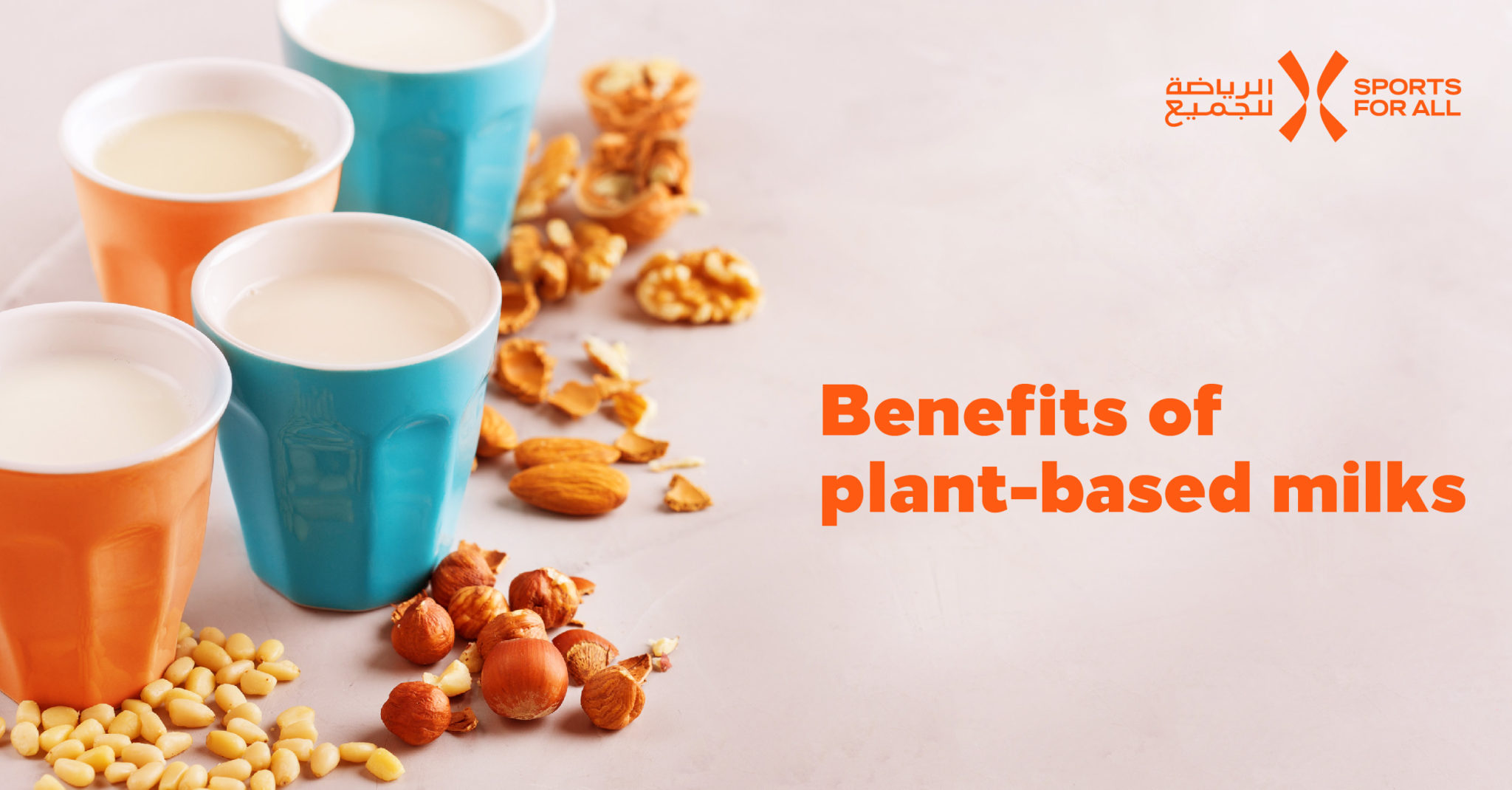The SFA guide to navigating the “mylk” aisle
More and more plant-based alternatives are popping up on supermarket shelves and coffeeshop counters. With more options available, it can feel overwhelming sometimes whether you have ditched milk years ago or have just started to delve into the world of plant-based alternatives. You may find yourself asking: almond milk or soymilk? How do they make milk out of rice? What is pea milk?
To help make your supermarket run a little easier, here’s a short guide to plant-based milks:
Rice Milk
Rice milk is a great vegan alternative for those allergic to nuts. Unsweetened, it is made from a mixture of milled rice, water, and some sort of thickener (usually an oil). Rice milk is not the most nutrient-dense of milk alternatives, but it’s high carbohydrate content can help fuel your workout. If you have diabetes, rice milk may not be the best option due to its high glycemic index. Those with diets that require higher protein content may also want to consider another alternative.
A cup of unsweetened rice milk contains 120 calories, 22g of carbohydrates, 0g of protein, and 2g of fat.
Almond Milk
Almond milk is a low-calorie alternative, equivalent to about a quarter of the calories in cow’s milk. Lower in carbohydrates, protein, and fat, almonds boast a high content of Vitamin E, which is made up antioxidants that help protect our body from free radicals. Look for brands that use a higher content of almonds in their mix to maximize your nutritional intake.
A cup of unsweetened almond milk contains 40 calories, 1g of carbohydrates, 2g of protein, and 3g of fat.
Coconut Milk
Looking for a thicker and creamier consistency? Coconut milk is for you! Its sweet and refreshing flavor invokes summertime. Try blending it with a handful of greens, some mango and pineapple for a delicious tropical smoothie. Coconut milk is rich in healthy fats, with a large portion of it in the form of medium-chain-triglycerides (MCTs). Some experts have linked consumption of MCTs to improved blood cholesterol levels.
A cup of unsweetened coconut milk contains 50 calories, 2g of carbohydrates, 0g of protein, and 5g of fat.
Soymilk
The OG of milk alternatives, soymilk has been available in many supermarkets and coffee shops for many years. Made from soybeans, it’s usually fortified with vitamin D and calcium to mimic cow milk. Looking for higher protein content? Soymilk is considered a “complete protein,” meaning that that is all the essential amino acids. It is also rich in potassium and fiber. Soymilk has stirred up a lot of debate due to its isoflavones content. Some research has shown that isoflavones, a type of plant estrogen, may affect our estrogen receptors when consumed.
One cup of unsweetened soymilk contains 80 calories, 4g of carbohydrates, 7g of protein, and 4g of fat.
Oat milk
Oat milk is arguably the trendiest of the plant-based milks at the moment and for a good reason. It boasts a creamy texture and high-fiber content, which includes the heart-healthy beta-glucan (Beta-glucan is known to regulate blood sugar levels and lower cholesterol). It is made from a blended mix of oats and water before it is strained into milk. Of course, oat milk doesn’t pack the same nutritional punch as whole oats so many brands fortify their product with Vitamin D, calcium, potassium or iron. Try adding the creamy milk to your morning cup of joe!
One cup of unsweetened oat milk contains: 120 calories, 16g of carbohydrates, 3g of protein, and 5g of fat.
The alternative milk section continues to expand, whether it be new nut milk or the emerging pea milk (made from pea protein). It’s always beneficial to read to nutrition labels and ingredient lists when picking out your plant-based milk, as they vary from brand to brand. Avoiding any artificial additives and other questionable ingredients is always a plus.
If you have some extra time at home, plant-based milks are easy to make! All you need is a blender, strainer, and ingredients. Blend some oats with water, and try out cashews or hazelnuts as a base. Maybe add some dates or vanilla for some extra flavor. Or make up your own concoction for the perfect consistency!
Healthy Living is a frequently updated content section brought to you by the Saudi Sports for All Federation. In the spirit of supporting our #HealthyActiveCommunity, we’re sharing tips around wellness, physical activity and more!






